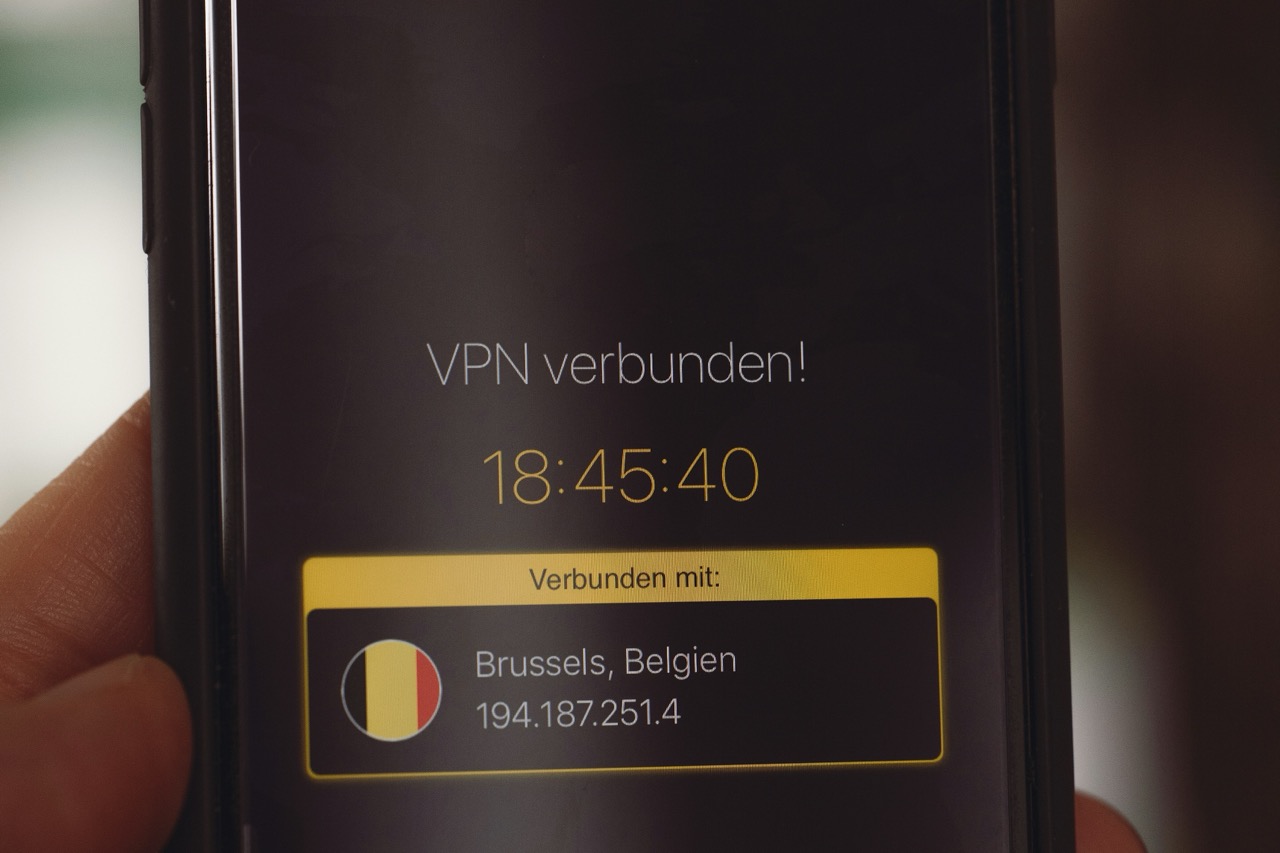In an increasingly digital world where privacy concerns are paramount, choosing the right Virtual Private Network (VPN) can be a daunting task. With a myriad of options available, each offering various features and protocols, it’s essential to understand your specific needs before making a decision. This article will guide you through the critical aspects to consider when selecting a VPN service that aligns with your privacy, security, and usability requirements.
Understanding Your Privacy and Security Requirements in VPNs
When considering a VPN, the primary concern for many users is the level of privacy and security it offers. Understanding your unique requirements is crucial because not all VPNs are created equal. Factors such as data encryption standards, logging policies, and jurisdiction can significantly impact your privacy. For instance, a VPN that operates under strict data protection laws (like GDPR in Europe) may offer better assurances compared to one based in a country with lax privacy regulations.
Additionally, it is vital to assess how much personal information you are willing to share with your VPN provider. Some services require minimal user data, while others might ask for extensive information during the registration process. Choose a VPN that aligns with your privacy philosophy; providers with a strict no-logs policy can enhance your anonymity by ensuring that your online activities are not recorded or monitored.
Furthermore, consider the potential threats you are trying to mitigate. If your primary concern is bypassing geo-restrictions, you may prioritize speed and server locations over stringent security features. Conversely, if you are worried about surveillance or data breaches, opting for a VPN that emphasizes robust encryption and security protocols becomes essential.
Evaluating VPN Protocols: Security vs. Speed Trade-offs
VPN protocols define how your data is secured and transmitted over the internet. Different protocols provide varying levels of security and speed, making it essential to evaluate which one best suits your needs. Common protocols include OpenVPN, IKEv2/IPSec, L2TP/IPSec, and WireGuard, each with unique advantages and drawbacks. OpenVPN, for instance, is widely regarded for its high level of security but can be slower due to its robust encryption methods.
On the other hand, WireGuard has emerged as a notable alternative, boasting higher speeds while maintaining a strong security framework. However, it’s important to consider its relative newness and whether it has undergone thorough security audits. When evaluating protocols, think about your internet usage: if you prioritize streaming or gaming, you might favor protocols that provide faster speeds, whereas if you are handling sensitive financial or personal data, you may prefer those that offer stronger encryption.
Moreover, the choice of protocol can also affect compatibility with devices. Not all devices support every VPN protocol, so it’s important to ensure that the protocol you choose works seamlessly with your devices. A well-rounded VPN service should provide a variety of protocols, allowing users to switch depending on their specific needs at any given time.
Comparing VPN Features: Kill Switches and Split Tunneling
When selecting a VPN, certain features can significantly enhance your overall experience and security. A kill switch is one of these critical features; it ensures that your internet connection is severed if the VPN connection drops unexpectedly. This prevents your data from being exposed, which is particularly important when using public Wi-Fi networks. Be sure to confirm whether your chosen VPN offers a reliable kill switch and how it functions across different operating systems.
Split tunneling is another valuable feature that allows users to choose which applications or websites use the VPN while others connect directly to the internet. This can be advantageous for those who want to access local services while maintaining a secure connection for sensitive activities. By evaluating how well a VPN implements split tunneling, you can tailor your internet experience based on your needs, enhancing both speed and accessibility.
Lastly, additional security features such as DNS leak protection and malware blockers can further bolster your online safety. Some VPNs also offer obfuscation technology, which disguises your VPN traffic to prevent detection, especially useful in restrictive regions. When comparing VPN services, take the time to review these features and determine which ones are essential for your unique requirements.
Assessing Server Locations and Performance Metrics
The availability of server locations can significantly impact the performance and effectiveness of a VPN. A wide array of servers allows users to bypass geo-restrictions more easily and can improve speed and connectivity by connecting to a closer server. Before selecting a VPN, evaluate its server network to ensure it covers the regions most relevant to your internet usage, whether you want to access content from specific countries or improve your browsing speed.
Performance metrics such as connection speeds, latency, and bandwidth are also crucial considerations. Many VPN providers offer speed tests and performance benchmarks, which can help you gauge how well a service performs under real-world conditions. Keep in mind that factors like server load and distance from the server can affect these metrics, so look for VPNs that allow you to switch servers easily if you encounter latency issues.
Finally, consider whether the VPN provider offers dedicated servers for specific purposes, such as streaming, gaming, or torrenting. Some VPNs have optimized servers designed to enhance performance for these activities, which could be a deciding factor depending on your primary use case. Assessing server locations and performance metrics will ensure that you choose a VPN that meets your expectations for speed and reliability.
Pricing Models: Free vs. Paid VPN Services Explained
The pricing structure of VPN services varies widely, with options ranging from free to premium paid models. Free VPNs often attract users with their no-cost offerings but may come with significant limitations, such as data caps, slower speeds, and reduced server options. Moreover, many free VPNs monetize their services by logging user data or displaying ads, potentially compromising the very privacy users seek to achieve.
Paid VPN services typically offer a more comprehensive solution, with higher levels of encryption, better performance, and a wider range of features like dedicated customer support and advanced security options. These services often provide various pricing tiers, including monthly, yearly, or multi-year subscriptions, allowing users to choose a plan that fits their budget and usage needs. When considering a paid VPN, look for those with a money-back guarantee, enabling you to test the service risk-free.
Ultimately, the decision between free and paid VPNs should be based on your privacy requirements, usage patterns, and budget. While free VPNs might be appealing for casual users, those who require reliable security and a robust feature set will likely find that investing in a trusted paid service is worthwhile in the long run.
User Experience: Compatibility and Customer Support Importance
User experience is a crucial aspect when selecting a VPN, as it directly influences how effectively you can utilize the service. Compatibility with various devices and operating systems is paramount; a good VPN should support major platforms such as Windows, macOS, iOS, Android, and even Linux. Before committing to a VPN, check its compatibility with the devices you intend to use, as well as any browser extensions or router configurations that may be necessary.
Customer support is another critical factor that can significantly affect your experience with a VPN. A reliable provider should offer multiple support channels, such as live chat, email, and extensive knowledge bases or FAQs. Quick and effective customer support is vital, especially if you encounter technical issues or require assistance in optimizing your VPN settings. Look for VPN providers with positive reviews regarding their customer service to ensure timely and helpful support.
Finally, consider the overall user interface and ease of use. A well-designed VPN application should provide a smooth experience, with intuitive navigation and clear instructions for connecting to servers or adjusting settings. This is particularly important for users who may not be technically savvy. Investing time in choosing a user-friendly VPN can enhance your overall experience, ensuring that you can focus on your online activities without unnecessary hassle.
In conclusion, choosing the right VPN involves a thorough understanding of your privacy and security needs, evaluating the various features and protocols available, and considering performance metrics against pricing models. By taking the time to assess your requirements and the specific offerings of different VPN services, you can make an informed decision that enhances your online security and experience. As cybersecurity continues to become a priority for users worldwide, investing in a reliable VPN is an essential step towards safeguarding your digital footprint.










